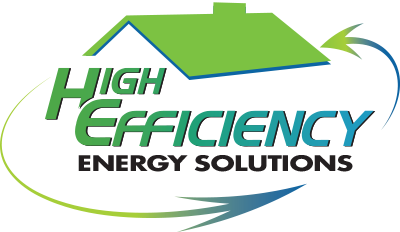A ductless HVAC system has the benefit of being energy-efficient, but also has the disadvantage of higher maintenance, along with even more varying pros and cons. Ductless systems have increased in popularity over time, however, it’s important to know all their strengths and weaknesses.
Are you a homeowner in Sandwich, Massachusets interested in installing a ductless HVAC system in your home? Perhaps you are overwhelmed with the options and unsure where to start.
Keep reading to learn all the necessary pros and cons of these HVAC systems.
What Are Ductless HVAC Systems?
Also known as a “mini-split” system, the ductless HVAC system splits heating and cooling between an indoor air handler, and an outdoor compressor/condenser. Refrigerant is stored in the conduit line between the indoor and outdoor unit, and cools the hot air, or warms the cold air.
The indoor portion of the system is installed on a wall or ceiling and can be individually controlled on each unit.
Pros Of Ductless HVAC Systems
Ductless HVAC systems have many different advantages, like energy efficiency and simple installation. Learning these different pros to ductless HVAC systems can help you decide if this system would be of greater benefit to you.
1. Energy Efficient
Ductless systems are very energy efficient with their cooling methods, unlike traditional AC systems can lose more than 30% of their energy through ductwork. Also, you can turn off units in individual rooms if you’re not using them, saving you even more energy in the long room.
2. Lower Cost Than Adding Ductwork
Putting ductwork into an existing home that has none is tedious and costly, however ductless systems won’t need any expensive ductwork to begin functioning. You can simply install the systems in the rooms of your choice and you are good to go.
3. Less Visible and Audible Than Window Units
AC Window units are loud and large, unlike ductless systems that operate quietly and relatively out of sight. Ductless systems are generally installed high or low on walls or ceilings and aren’t very big. This can make a serious difference to those interested in keeping a clutter-free space.
4. Simple Installation
The installation process for a ductless system isn’t very complicated and can be done relatively quickly, dependent on the size of the home and how many units are needed. This is a stark difference from the process it would take to install ductwork into a home without any to begin with.
5. Improved Air Quality
Unlike AC systems that operate through ductwork, ductless systems won’t have the risk of carrying as much dust or allergens. Ductwork can get dusty and dirty quickly, and without regular cleanings, you risk the chance of circulating poor-quality air through your home.
6. Great for Home Additions or Renovations
These systems make a great option for rooms that have been added to the home later, and that may not be able to be cooled or heated as easily. Perhaps you added a garage apartment; a ductless system will easily control the climate of the space.
Cons Of Ductless HVAC Systems
Ductless HVAC systems have their disadvantages as well, such as higher costs, greater maintenance, and more. Being aware of their weaknesses is important when considering choosing one for your home.
1. Higher Cost
Ductless systems can be more expensive upfront than other units, such as window units. This is because of the cost of the system with the indoor air handler and outdoor compressor, and then the cost of installation.
2. Aesthetic Reasons
While not as cumbersome as a window unit, ductless systems can still be considered an eyesore by those who are bothered by visible AC units. They aren’t able to be as hidden as ductwork HVAC systems, and this can be a bother to some people.
3. Outdoor Space Necessary
Due to the necessary outdoor compressor, you will need to have adequate outdoor space. This may not be possible for people with limited outdoor space or no backyards.
4. Higher Maintenance
Ductless systems will require more frequent maintenance than other AC systems, with their filters needing to be regularly cleaned once a month. For those who smoke or have pets, you may have to clean the filter even more often.
5. Lowered Performance in Extreme Temperatures
For those who live in extremely cold climates, a ductless system’s heating performance may be less effective. You can still own one, but it is recommended to have a supplemental heating system for those who live in very cold climates.
6. Higher Installation Cost Depending on Space Size
If you have a great number of rooms to heat or cool, you will need a great number of individual units, which can quickly grow expensive. Keep in mind how many units you will need for how many rooms when considering a ductless system.
Frequently Asked Questions
Do ductless HVAC systems last a long time?
Ductless systems are generally very durable and long-lasting, and have a life expectancy of up to 20 years if properly maintained and cared for. This is longer than more traditional HVAC units.
Where in the home should you install a ductless HVAC system?
It is generally recommended that ductless HVAC systems are placed on the perimeter walls of the home, as this will keep them closer to the compressor systems. It is also important that they are placed on completely vertical walls, with no slope or angle.
Conclusion
A ductless HVAC system can be a great choice for many homeowners, but it’s important to know the pros and cons to be sure if it’s the best fit for you. When you take the time to compare its advantages and disadvantages, you’ll be more prepared to make your decision for your HVAC system.
Are you in Plymouth County or Cape Cod, Massachusets, and looking for a heating and cooling specialist? With 13 years of experience, High-Efficiency has the answers to any questions you may have. Call us at 508-825-3695 today!



